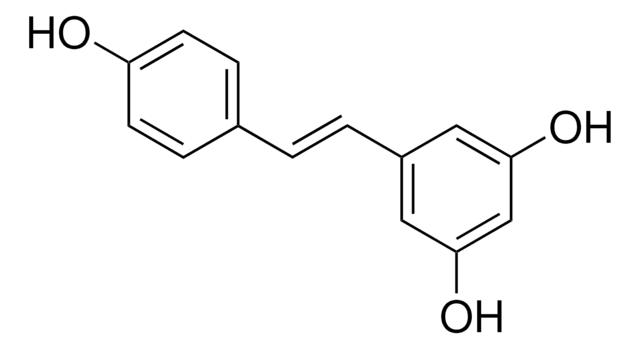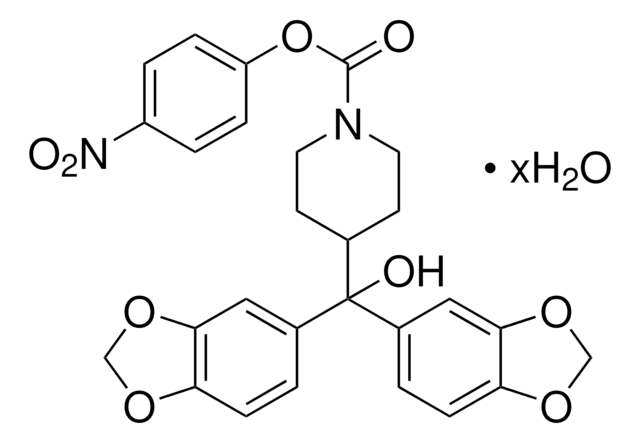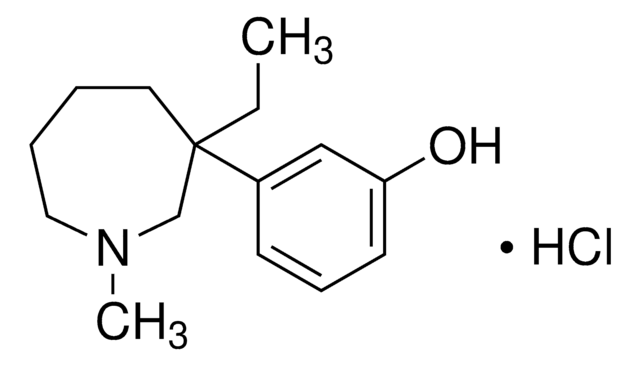SML0257
JZL195
≥98% (HPLC)
Sinônimo(s):
4-[(3-Phenoxyphenyl)methyl]-1-piperazinecarboxylic acid 4-nitrophenyl ester
About This Item
Produtos recomendados
Ensaio
≥98% (HPLC)
Formulário
powder
cor
white to beige
solubilidade
DMSO: ≥5 mg/mL at warmed
temperatura de armazenamento
−20°C
cadeia de caracteres SMILES
[O-][N+](=O)c1ccc(OC(=O)N2CCN(CC2)Cc3cccc(Oc4ccccc4)c3)cc1
InChI
1S/C24H23N3O5/c28-24(32-22-11-9-20(10-12-22)27(29)30)26-15-13-25(14-16-26)18-19-5-4-8-23(17-19)31-21-6-2-1-3-7-21/h1-12,17H,13-16,18H2
chave InChI
QNYRAEKLMNDRFY-UHFFFAOYSA-N
Aplicação
- as a selective inhibitor of endocannabinoid (eCB) clearance enzymes to induce in vivo long-term depression at CA3-CA1 synapses and at prelimbic (PrL)-nucleus accumbens (NAc)synapses, to study the neuroprotective action of eCB
- to inhibit the action of hydrolytic enzymes that limit eCB activity, to study the effect of 2-linoleoylglycerol (2-LG) on the human CB1 receptor activity
- as a dual fatty acid amide hydrolase (FAAH)/monoacylglycerol lipase (MAGL) inhibitor to study its dose-related antipruritic effect on the serotonin (5-HT)-induced scratching model
Ações bioquímicas/fisiológicas
Código de classe de armazenamento
11 - Combustible Solids
Classe de risco de água (WGK)
WGK 3
Ponto de fulgor (°F)
Not applicable
Ponto de fulgor (°C)
Not applicable
Escolha uma das versões mais recentes:
Certificados de análise (COA)
Não está vendo a versão correta?
Se precisar de uma versão específica, você pode procurar um certificado específico pelo número do lote ou da remessa.
Já possui este produto?
Encontre a documentação dos produtos que você adquiriu recentemente na biblioteca de documentos.
Nossa equipe de cientistas tem experiência em todas as áreas de pesquisa, incluindo Life Sciences, ciência de materiais, síntese química, cromatografia, química analítica e muitas outras.
Entre em contato com a assistência técnica







